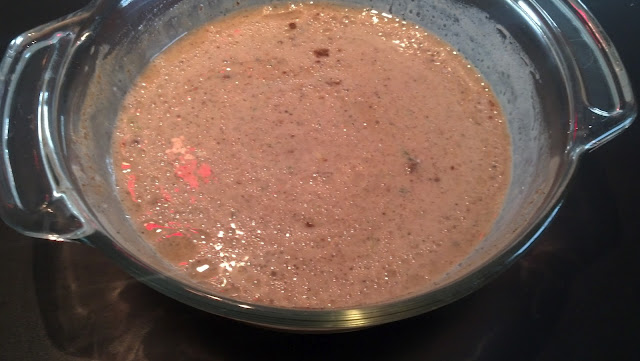First I want to point out that there is a difference between early stage Lyme and late stage Lyme, also referred to as chronic Lyme. Every so often when people find out I have chronic Lyme they say, "I had Lyme....got bitten by a tick, took a 10-day course of antibiotics and I am fine." Believe me, if a 10-day course of antibiotics could cure me I would have taken them already!
Also, if I had taken antibiotics right away I may be fine, too, but I didn't. I don't know exactly how long I have had Lyme disease, but easily 10 years or longer. That's a big difference to just being bitten the first time and then taking antibiotics immediately.
In addition, I would question their definition of "fine". Usually the same people also quite often complain of headaches, fatigue, muscle aches, feeling more tired than usual, not being as limber, and other ailments, and they are usually overweight. I don't consider any of those ailments or being overweight as fine. In addition, I don't want to feel "fine" I want to feel GREAT. I want to wake up in the morning ready to start the day, feeling joyful, with energy to exercise, go to work, hang out with friends, and enjoy life. The way I used to.
OK, I will get off my soap box now and instead talk about what I had intended to talk about. Many people with chronic Lyme disease lose weight involuntarily and can even get dangerously thin. However, from what I have read, and from what my doctor has told me, the majority of people actually gain weight. Below are some possible reasons explaining why:
Adrenal Insufficiency
Stress of any kind, whether emotional or physical, taxes the adrenals. Stressed adrenals produce too much cortisol and eventually won't be able to produce enough cortisol. This leads to thyroid as well as other issues that can cause weight gain. This is obviously a very short explanation but there are many articles on the interwebs about adrenal insufficiency so it makes no sense for me to go into more detail here. The key is that a prolonged infection, such as chronic Lyme, is major stress on the body and will tax your adrenals.
Hypothyroidism
This means that your body is not making enough thyroid hormone OR you do have enough thyroid hormone but it is not getting to where it needs to go. The former, as mentioned above, can be caused by adrenal insufficiency. The latter is called a functional deficiency because your blood tests will look normal but it just shows the level of hormones floating around in your blood. All bacteria (not just Borrelia burgdorferi - the Lyme bacteria), parasites, fungi, and viruses release toxins. These toxins can occupy thyroid receptors blocking the actual thyroid hormone from getting to them and the cells, where they need to be. Hypothyroidism leads to weight gain among many other horrible symptoms.
Reverse T3 Syndrome
Your body makes a thyroid hormone called T4, among others, which it then converts to the active thyroid hormone T3. This is the hormone that actually controls your metabolism. There is also a hormone called reverse T3 (RT3). During prolonged infection, such as chronic Lyme, the body may convert too much T4 to RT3 instead of T3. If the ratio between RT3 and T3 is too low you will gain weight as this is pretty much the same as hypothyroidism. There are other causes for RT3 issues, but chronic infection is one of them.
Parasites
Many people with chronic Lyme, or other chronic illnesses for that matter, have parasitic overgrowth. When they eat a meal the parasites get all the good nutrition from their food and the body is left with crap. Although you may be getting an adequate amount of calories, your body thinks it is starving because it is not getting any of the nutrients. We all know what happens when we go on a restricted calorie diet, or at least we all should know by now. Your body goes into starvation mode and down regulates its metabolism. Now, with a lowered metabolism, your body is not burning as many calories as before but you are still eating the same amount of calories as before which leads to weight gain. In addition, this also causes increased hunger and in some cases people over eat further compounding the problem of the lowered metabolism.
Insulin Resistance
Chronic infection causes insulin resistance. What this means is that the insulin your body is producing is not capable of getting glucose to the cells. More and more insulin is secreted and stored in your fat cells - sort of. This is the extremely abbreviated version. You can read more about insulin resistance here or do a Google search. Just don't believe the lies that you need more grains and/or fiber to fight insulin resistance. That's bologna!
Biotoxins
I don't know that much about biotoxins yet, but have been reading more and came across an interesting article by Dr. James Shaller. In it he says the following:
"Lyme biotoxins disrupt the fat cell system and if not removed cause a type of obesity highly resistant to diet and exercise. The critical Leptin hormone increases and creates a type of bloating, puffiness or abdominal distention that is demoralizing to those trying to have a healthy weight"

















